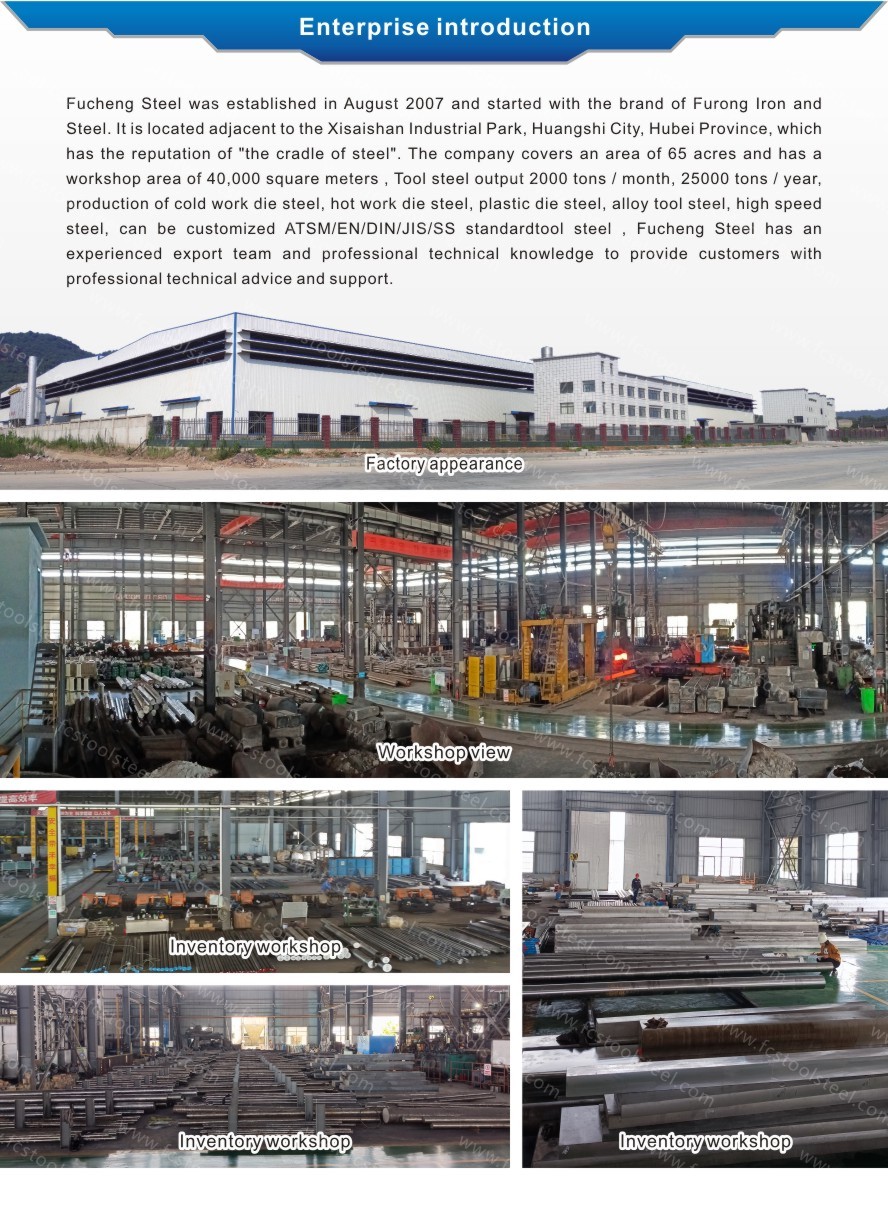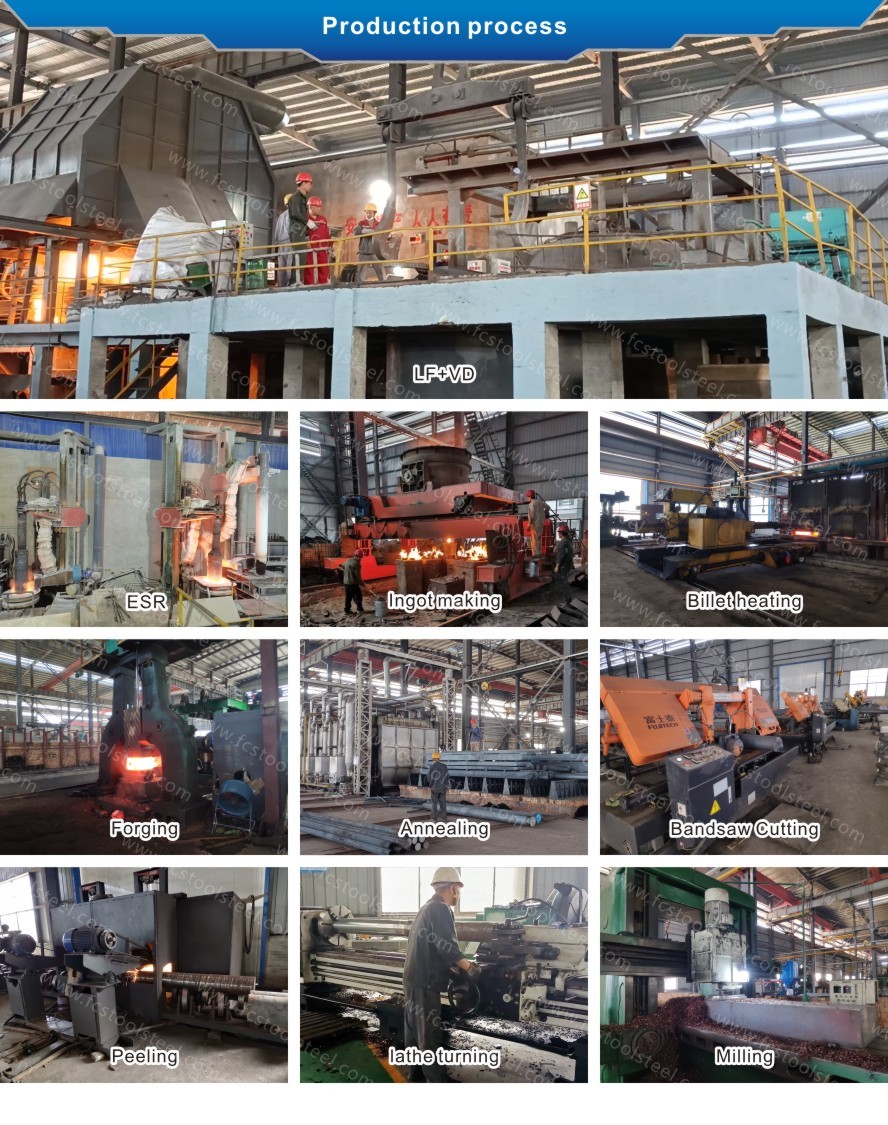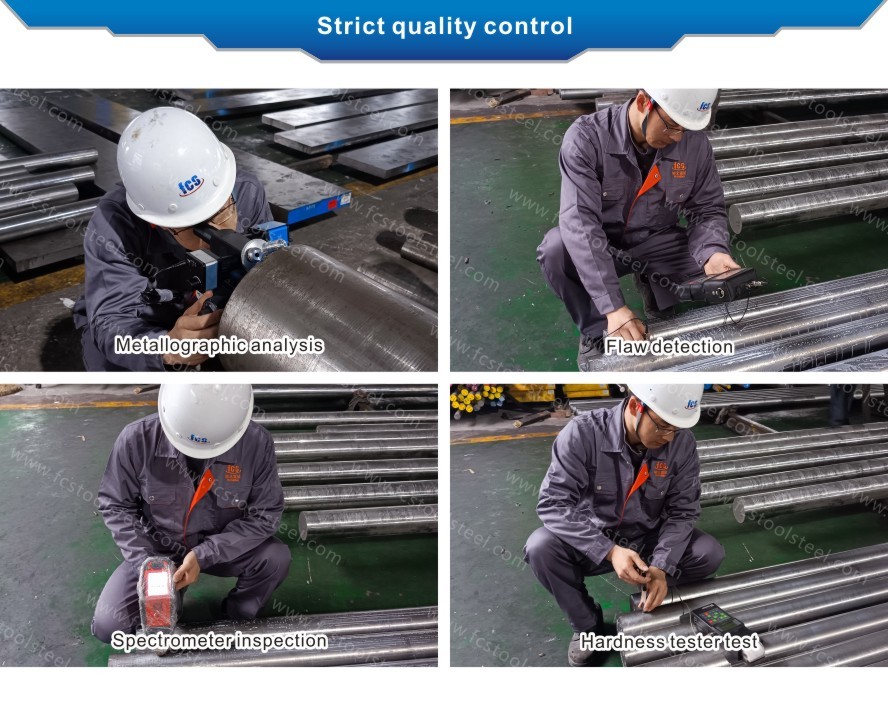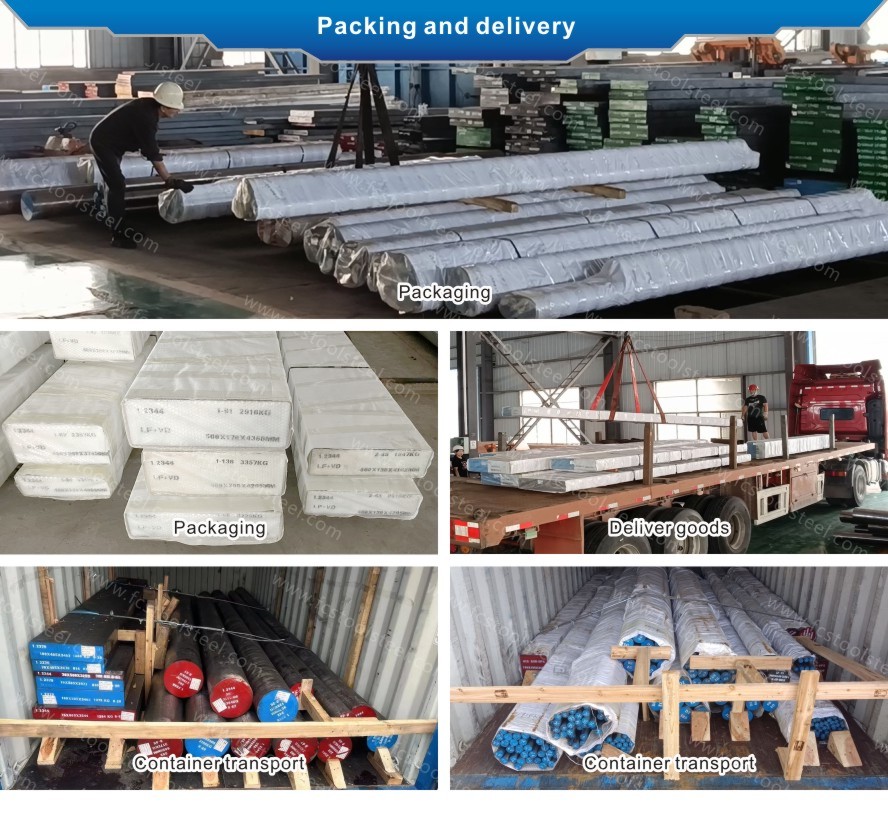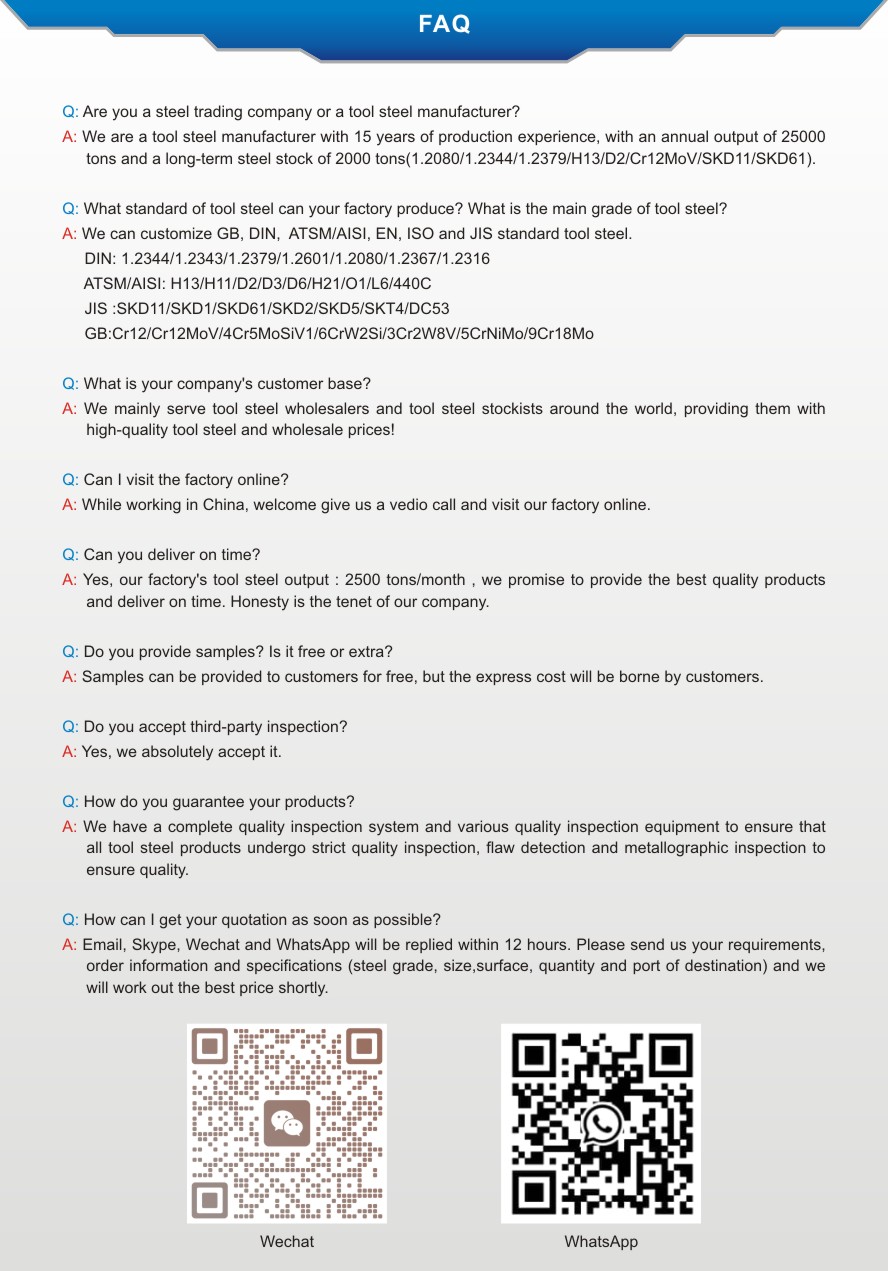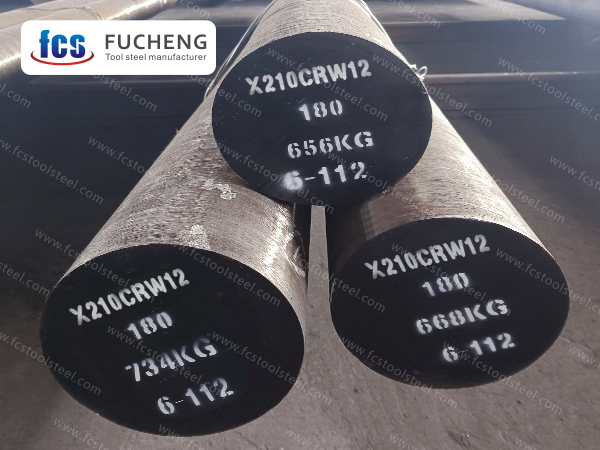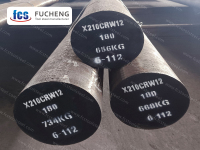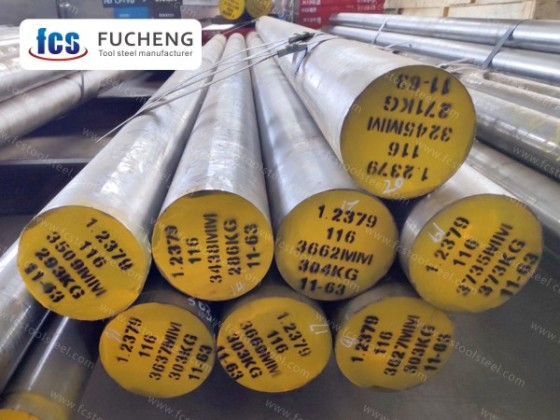
- Home
- >
- Products
- >
- X210CrW12 Steel
- >
X210CrW12 Steel
X210CrW12 steel is suitable for cold extrusion die, cold stamping die, wire rolling die, wire rolling plate, etc. with complex shape and high impact resistance.
- Fucheng Steel
- China
- 1 Month
- 2000 Tons/Month
- Information
X210CrW12 TOOL STEEL
| Smelting and Manufacture Method: | LF+VD+Forged |
| Delivery Condition: | Annealed |
| Delivery hardness: | ≤255 HBS |
| UT Test Standard: | Sep 1921-84 Class3 D/d,E/e |
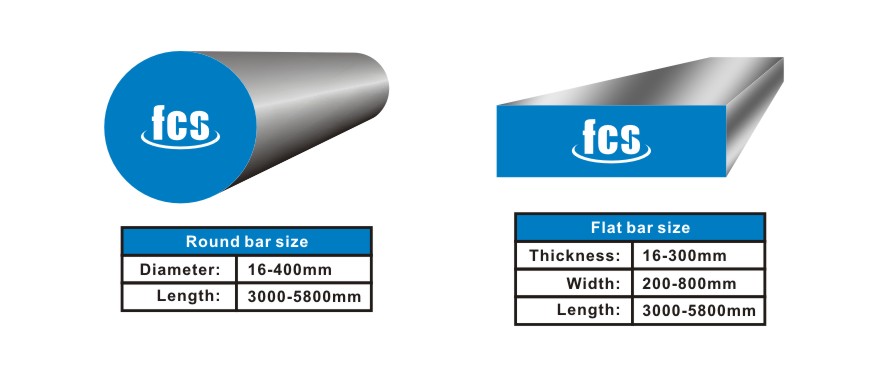
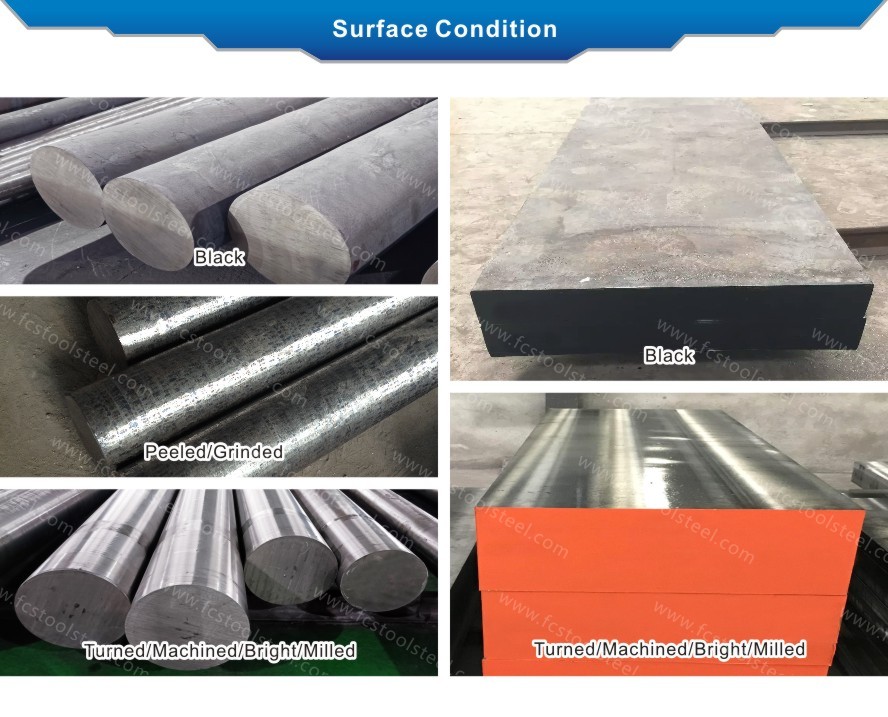
X210CrW12 STEEL GRADE COMPARISON AND CHEMICAL COMPOSITION COMPARISON
| Standard/Steel Grade | Chemical Composition(%) | |||||
| C | Si | Mn | Cr | W | ||
| GB | Cr12W | 2.00~2.30 | 0.10~0.40 | 0.30~0.6 | 11.00~13.00 | 0.60~0.80 |
| ASTM | D6 | 2.00~2.20 | 0.35~0.50 | 0.20~0.40 | 11.50~12.50 | 0.60~0.90 |
| DIN/W-Nr. | X210CrW12/1.2436 | 2.00~2.25 | 0.10~0.40 | 0.15~0.45 | 11.00~12.00 | 0.60~0.80 |
| JIS | SKD2 | 2.00~2.30 | 0.10~0.40 | 0.30~0.60 | 11.00~13.00 | 0.60~0.80 |
APPLICATION
X210CrW12 steel is suitable for cold extrusion die, cold stamping die, wire rolling die, wire rolling plate, etc. with complex shape and high impact resistance.
X210CrW12 STEEL CHARACTERISTICS
X210CrW12 steel is a high wear-resistant chromium steel, belonging to the category of high carbon and high chromium ledeburite steel, widely used in the manufacturing of cold work molds. It has a carbon content ranging from 1.45% to 2.3%, a chromium content exceeding 12%, and also contains a small amount of molybdenum and vanadium. The eutectic temperature of this type of steel is about 1150 ℃, and during the solidification process, a large amount of eutectic network state compounds are generated, with a carbide content of about 20%.
Due to the presence of approximately 0.70% tungsten, X210CrW12 steel has high hardness, strength, wear resistance, toughness, as well as good hardenability, hardenability, and other process properties. These characteristics make it 3-4 times superior to ordinary low alloy tool steel, and the quenching volume deformation is small. Especially, due to its good hardenability and hardenability, X210CrW12 steel is particularly suitable for making high-strength and wear-resistant molds that are heated to no more than 400 degrees, such as steel plate deep drawing dies, wire drawing dies, thread rolling plates, punching dies, shear knives, saw blades, etc.
The high hardness and strength of X210CrW12 steel make it an ideal material for making various cold working molds. For example, it can be used to make deep drawing molds for steel plates, which need to withstand enormous pressure and wear, thus requiring extremely high hardness and strength. The high hardness and strength of X210CrW12 steel can ensure that the mold will not deform or be damaged during use, thereby ensuring product quality and production efficiency.
The high wear resistance of X210CrW12 steel makes it an ideal material for making various severely worn tools and molds. For example, it can be used to make wire drawing molds, which generate intense friction with metal materials during operation, and therefore require extremely high wear resistance. The high wear resistance of X210CrW12 steel can ensure that the mold will not fail due to wear during use, thereby extending the service life of the mold.
The excellent hardenability and hardenability of X210CrW12 steel make it an ideal material for making various complex shapes of tools and molds. For example, it can be used to make thread rolling plates, which require complex shapes and precise dimensions, thus requiring excellent hardenability and hardenability. The good hardenability and hardenability of X210CrW12 steel can ensure that the mold can obtain a uniform microstructure and excellent hardness distribution during the quenching process, thereby improving the performance and service life of the mold.
Although X210CrW12 steel has excellent performance, its poor structure is a major problem, which may lead to unstable performance. Therefore, regular maintenance and upkeep are required during use to ensure stable and long-lasting performance. In addition, due to its high content of chromium and carbon, attention needs to be paid to controlling the heating temperature and cooling rate during the heat treatment process to prevent performance degradation caused by overheating or undercooling.
